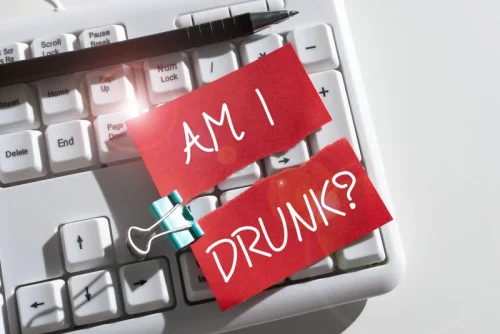Stoptober 2024: What going alcohol-free does to your body

The key lies in exploring their relationship with alcohol, questioning why they want to drink, and finding ways to deal with their ‘whys’ that don’t involve alcohol. Being a sober person means you practice complete abstinence from drugs, alcohol, and other addictive substances. In the short term, it also means you aren’t intoxicated or under the influence of any of those substances. By seeking help and attending support groups like Refuge Recovery, Smart recovery, Celebrate Recovery, Alcoholics Anonymous…, individuals can learn to live a fulfilling sober life. It may be difficult at first, but the benefits of sobriety – improved health, relationships, and overall happiness – outweigh any temporary pleasure from alcohol. Remember that you are not alone in your struggle and there is always help available.

Short Term vs. Long Term Sobriety
- You are likely also resentful of others who are trying to impose change upon you and you may be jealous of those who don’t seem to suffer with the same problems as you do.
- Often people have more sex, and enjoy it more, when they’re sober.
- Thus, the intervention is a way to help them prepare for the challenges and recognize the potential benefits of new activities and experiences.
- Anecdotal evidence suggests the effects of a detox from alcohol are gradual over the entire four-week process; so there’s not a set timeline for each to kick in at one time.
- Many of my clients with depression often have an underlying alcohol problem, which they don’t initially disclose but emerges as time goes on.
Approaches that might have once seemed ludicrous — like treating opioid addiction with psychedelics — have gained broader enthusiasm among doctors as drug overdoses kill tens of thousands of Americans each year. “Just because someone has a drinking problem doesn’t mean they have a problem with every single thing,” Reed said. If you or a family member needs help getting sober, then call our admissions staff for more information. Through proper treatment with the 12 Steps, you can “reduce to a quiet condition” https://ecosoberhouse.com/ the feelings you are resistant to and be comfortable with being honest with yourself. In the 14th century, sober meant, “reduce to a quiet condition.” Although this definition does not exactly match what we mean by sober, we can use it here. There are a number of reasons why someone may get clean, but not yet embrace sobriety.
Delving into the Meaning of Alcohol Awareness Month
It takes dedication and commitment to maintain sobriety, but the benefits far outweigh the challenges. Living sober can lead to a fulfilling and enriching life full of purpose and joy. Drinking alcohol in any amounts—yes, even in moderation—can negatively impact your health. Yet there’s a strong social aspect to drinking that’s hard to ignore, especially among younger people. It’s not cutting out alcohol entirely, but more about exploring your relationship with alcohol and how to drink less of it. Maybe it’s cutting out regular happy hour cocktails with friends, not drinking wine or beer for a week, or jumping on the Dry January trend and forgoing alcohol for a whole month.

What Does it Feel Like to Be Sober?
- It refers to the journey of achieving and maintaining a sober lifestyle.
- Some houses have a “residents’ council,” which functions as a type of government for the house.
- However, in recent years, there’s been a growing awareness of the health implications of alcohol consumption and a cultural shift toward non-alcoholic beverages.
- Seeking help for alcohol addiction or any substance abuse disorder can feel challenging, but there are many resources to help you.
- Of course, not everyone who drinks has a problem, but a break from alcohol can allow people to consider how much they’re drinking and why.
The second fundamental lesson is about the challenges we face when living sober. It’s a life commitment – not necessarily as the seemingly impossible task of “for life” but in terms of how you live your life. If you adopt this attitude, then recovery is going to be very challenging and, indeed, will likely not be sustained. That is because you are viewing not drinking as a burden, almost as a form of punishment.
- Unmask the impact of alcoholic dementia and discover empowering paths to recovery.
- With many people struggling with alcohol use disorder, they are often the last to realize that they have a problem.
- “Just because someone has a drinking problem doesn’t mean they have a problem with every single thing,” Reed said.
- Listen to them, validate their experiences, and acknowledge their achievements.
Early sobriety may come with feelings of fatigue and the stress of dealing with challenges (people, places, and things that stimulate the urge to use). It’s impossible to know how you’ll react and how your life will change when getting and staying sober. Some people may find that wearable devices and smartphone apps can support their recovery from alcohol use disorder. Biosensors monitor physical changes, detect alcohol use, and identify relapse risk. Studies suggest digital health options can improve access to care for some of what is Oxford House the 15 million people experiencing alcohol use disorder each year. One study found that 68% of people treated in a detox unit experienced moderate alcohol withdrawal symptoms.

It encourages people to think about how drinking impacts their health and happiness and to try taking breaks from alcohol. If you have AUD or think you are addicted to alcohol, talk to a healthcare provider. Medical support can help you safely navigate withdrawal and begin your journey to recovery and long-term sobriety. Over time, alcohol addiction causes a shift in the brain’s motivation to drink.

Sober means being free of intoxicating substances, as in not controlled by them. It’s a state of mind where an individual doesn’t have alcohol or drugs in their system and can think clearly and logically. Usually, when you notice your alcohol intake is getting out of hand, you decide to take a break and return to your usual habit the next month. As for sobriety, it’s a long process where you make a decision never to does sober mean no alcohol drink again in your life. A sober person is not supposed to drink throughout his entire lifetime, whereas a non-drinking person may sometimes opt to drink occasionally or practice sobriety for the time being.
